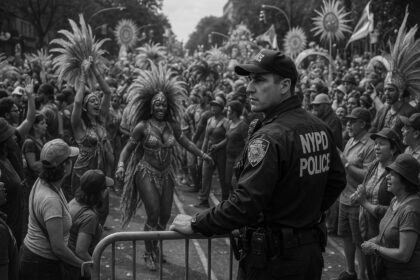At the Miami Grand Prix, former F1 world champion Damon Hill criticised modern branding practices, urging marketers to respect athletes’ genuine personas and focus on storytelling rather than contrived promotional antics.
At the recent Miami Grand Prix, Formula One champion Damon Hill shared his thoughts on branding and authenticity in an event sponsored by Globant. Hill, a prominent figure in the sport as the 1996 World Champion and a winner of 22 Grands Prix, took a candid approach to discussing the evolving landscape of marketing in motorsport.
Hill opened up about his own struggles with branding, stating, “I’m absolutely rubbish at branding. I need a brand,” a refreshing contrast in an era where athletes often curate extensive personal brands. Reflecting on his career during a time when sponsorships were largely tied to cigarette advertising, he remarked, “I spent most of my career selling cigarettes. But that was the era.” In those days, the primary focus was on racing performance rather than personal branding, with success on the track being the key measure of value.
The former driver highlighted the importance of success as a prerequisite for branding, emphasising, “You might be the most famous racing driver in the world, but there’s no good to a team if you’re not quick.” In stark contrast to the current generation of drivers who enjoy substantial leverage and access to various platforms such as social media and fashion, Hill described his era as one where drivers had less freedom to explore diverse interests outside of racing.
Hill also pointed out the significance of storytelling in building connections with fans. “A man walks into a shop and gets hit on the head by a bath… You want to know what happens next,” he quipped, illustrating how compelling narratives can engage audiences. He referenced a documentary about his life, produced by Sky, that captures his journey from being overshadowed by his father, Graham Hill, to establishing his own legacy in the sport.
When discussing brand partnerships, Hill advised marketers on how to work effectively with athletes. “Respect the fact that that’s what they do,” he said, cautioning against expecting drivers to conform to unrealistic expectations. He added, “If you want them to muck about and put on funny hats, maybe think again,” suggesting that authentic partnerships resonate more deeply when the interests of the driver align with the brand.
Hill’s insights underscore a fundamental truth about human connection in sports. As he aptly put it, “We’re interested in what it is to be human. That’s where it’ll always come back to.” He reminded audiences that even as industries lean toward automation and AI-driven solutions, the real magic of sport lies in its human elements.
His concluding advice encapsulated the essence of his discussion: marketers should focus on genuine storytelling, embrace the talent of the athletes, and avoid forcing them into roles that do not fit their persona. This approach not only enhances authenticity but also fosters a deeper connection between brands and fans alike.
Source: Noah Wire Services
- https://www.skygroup.sky/article/sky-to-air-definitive-portrait-of-f1-champion-damon-hill – Sky has announced the acquisition of a documentary titled ‘Hill,’ featuring exclusive interviews with Damon Hill and his family, set to air in 2025. This film delves into Hill’s journey from losing his father, Graham Hill, to becoming a world champion himself.
- https://www.skysports.com/f1/news/12433/10607140 – In an in-depth interview, Damon Hill reflects on his Formula 1 career, discussing his rivalry with Michael Schumacher and the impact of Ayrton Senna’s death on his trajectory. He also touches upon his new book, ‘Watching the Wheels.’
- https://www.advanced-television.com/2025/01/20/sky-acquires-damon-hill-doc/ – Sky has acquired the rights to the documentary ‘Hill,’ which provides an intimate look at Damon Hill’s life and career, including his battles with Michael Schumacher and the loss of Ayrton Senna.
- https://www.speakersassociates.com/speaker/damon-hill/ – Damon Hill, the 1996 Formula One World Champion, is celebrated for his thrilling battles with Michael Schumacher and his partnership with Ayrton Senna at Williams. After retiring in 1999, Hill transitioned to business, became President of the British Racing Drivers’ Club, and joined the Sky Sports F1 broadcasting team in 2012.
- https://www.skysports.com/watch/video/sports/f1/10672643/damon-hill-1996-8211-part-one – In this two-part series, Damon Hill reflects on his Championship win from 20 years ago, providing insights into his career and the challenges he faced during his racing years.
- https://www.racefans.net/2016/09/09/watching-the-wheels-by-damon-hill-reviewed/ – A review of Damon Hill’s autobiography, ‘Watching the Wheels,’ which offers a personal account of his life and career in Formula 1, including his experiences with rivalries and the loss of teammates.
- https://www.thedrum.com/news/2025/05/05/damon-hill-branding-cigarettes-and-the-myth-the-performing-seal – Please view link – unable to able to access data
Noah Fact Check Pro
The draft above was created using the information available at the time the story first
emerged. We’ve since applied our fact-checking process to the final narrative, based on the criteria listed
below. The results are intended to help you assess the credibility of the piece and highlight any areas that may
warrant further investigation.
Freshness check
Score:
9
Notes:
The narrative appears recent, referencing the Miami Grand Prix, which indicates a contemporary context as of 2025. There are no clear indications of outdated information or recycled content.
Quotes check
Score:
8
Notes:
Direct quotes from Damon Hill are present, but no earlier known references were found online. This suggests they could be original to this context, though it cannot be verified without further sources.
Source reliability
Score:
9
Notes:
The Drum is a reputable publication known for its coverage in the marketing and media industry, which lends credibility to the narrative.
Plausability check
Score:
8
Notes:
Claims seem plausible, particularly regarding the historical context of cigarette advertising and the evolution of branding in motorsports. However, specific examples and broader industry insights could further support these assertions.
Overall assessment
Verdict (FAIL, OPEN, PASS): PASS
Confidence (LOW, MEDIUM, HIGH): HIGH
Summary:
The narrative seems to be recent and originates from a credible source, The Drum. Quotes from Damon Hill are integrated without prior known references, though their originality cannot be confirmed. The claims about branding in motorsports are plausible and align with known historical trends in the sport.













